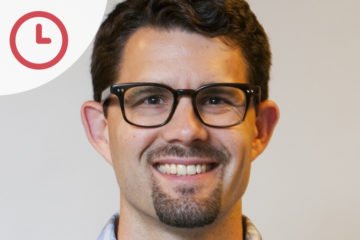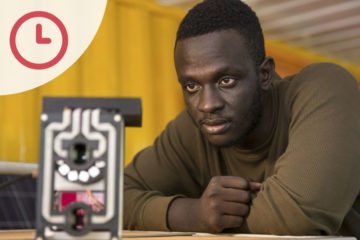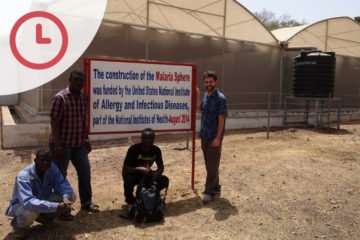Podcast Available on iTunes and Spotify.
Welcome back to Five Minutes, the podcast series where we speak to the most interesting people in the world of malaria.
Since the New York Times published a story detailing allegations of sexual harassment against Harvey Weinstein in October of last year, there’s been a surge in support for feminism and the fight for equality.
There have been huge societal shifts, with the MeToo movement demanding female empowerment, not only in Hollywood on the big screen, but across a variety of careers. Such is true with STEM: Science, Technology, Engineering and Mathematics.
Joining me today are two female malaria researchers Elena Gomez Diaz in Spain and Joanne Power in Scotland. They’ve created a website called ‘Women in Malaria‘, it acts as a communications platform for women working in malaria research.
Live from Spain and Scotland, they join me now, good afternoon.
[JOANNE]: Good Afternoon
[ELENA]: Good Afternoon
What was the inspiration behind making the site?
[ELENA]: Well, I think that, in our case, the inspiration was about the feminist movement and that very radical idea that women deserve equal rights and opportunities as men. In the case of science, studies show there is a very low presence of women scientists in the media, the scientific meetings, evaluation committees and many other events that are related to science communications. And these numbers are there and they are very far from equality. So our aim is to contribute to reduce this gender bias and to remove the barriers that keep women in science from their career success.
Say that I’m a female researcher working in the field of malaria. How can your website help me?
[JOANNE]: Yeah, we’re just starting it. So when Elena contacted me initially to help with starting it up, I used a template from another woman and parasitology, Elise English, who works in Scotland and she started a ‘Women and Minorities in Parasitology’ web page and I thought that I’ll use the same format. There will be a page with all of the women who work in malaria, there’s a page on who to follow, so I’ve stuck in all of the Twitter handles of, at the moment it’s about 40 women who work in malaria, students up to PIs and then the first page is some stuff that I would have liked to have had when I was starting off in Plasmodium research, so the homepage is going to be some general resources like PlasmoGem, PlasmoDB, where you can go in and look at what’s available, the resources for any student or person working in Plasmodium or malaria in general, falciparum, our rodent model like I worked on.
Why do you think there is gender inequality in malaria?
[ELENA]: Well, I think that it’s not only malaria, it’s in different fields in STEM. Science has been built by men and the structures are designed by men, and then when you have to think ultimately men think about men.
[JOANNE]: I think the same, malaria is not quite as bad because it’s a biological science. Other areas are worse in physics and mathematics, I think women are even more underrepresented but there’s still a lot of change to be made.
I wonder what your response would be to the argument that by promoting a female-only platform, you are excluding male researchers, ironically leading to inequality.
[JOANNE]: That’s something I worried about as well, once starting with Science Girl and focusing on women in STEM at first. But, it is open to everybody, it’s just to show more women’s faces in malaria research, not to discriminate against anyone who is male or non-binary because I know we need definitely need a lot more people who are you know that are in the LGBT community as well to say I’m a scientist too and you know anyone can be a scientist, no matter who they are, no matter if they’re you know of colour, whether they are female, male non-binary, anything, it doesn’t matter. You are always welcome to use the resources. I don’t want it to come across like that I would rather just put a put women’s faces out there, look we’re scientists too, we’re only a part.
Elena and Joanne, thank you.
[JOANNE]: Thank you.
[ELENA]: Thank you very much.
Well there we go, that was Elena and Joanne from Spain and Scotland on Five Minutes. If you’d like to check out their website, go to womeninmalaria.weebly.com


